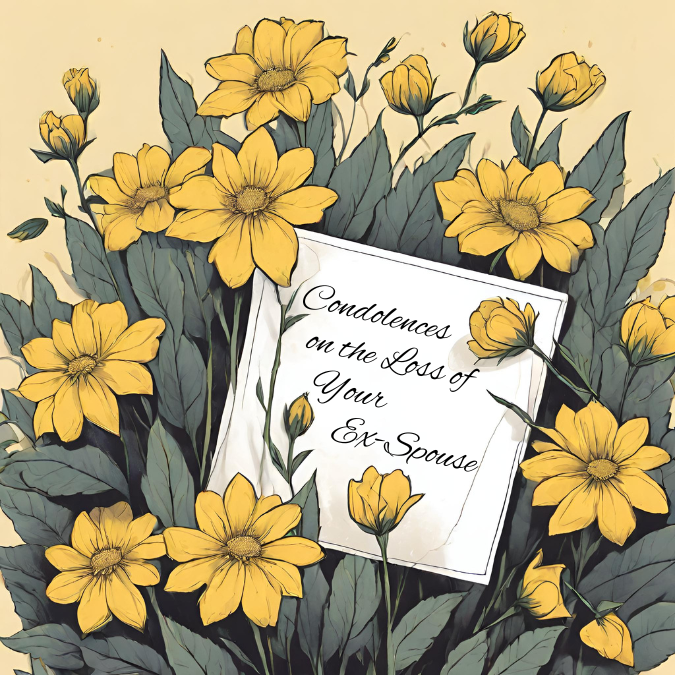There’s no Hallmark card for the death of an ex-spouse.
Losing an ex-spouse can be a complex and challenging experience, especially for those who have gone through the emotional turmoil of divorce. The inevitable mix of grief, nostalgia, and possibly unresolved feelings can be overwhelming and challenging to navigate.
A dear friend of mine recently experienced such a loss and it made me think about how I would react if an ex-spouse of mine passed away. How would I feel? How would I support their family and our children? Do I go to the funeral?
After doing a bit of research it became clear that many people struggle with this. Despite our best efforts, death is inevitable. And as a divorced person, so is the death of an ex-spouse.

Navigating Emotions
Despite the ending of the marriage, the connection and history that existed between ex-spouses remain, and the loss can bring about a flood of mixed emotions. It may trigger a resurgence of unresolved feelings, regrets, or unspoken words. It can even bring a sense of relief or closure.
The truth is it’s complicated. And while others may not understand how this loss affects you, know that your grieving process and the feelings you experience are all valid. Turns out there is a term for this. It’s called “disenfranchised grief”, and it means grief that may not be fully recognized or supported by others.
While people are quick to provide comfort and condolences to family and friends of the deceased, there is often little thought given to the ex-spouse. Or, people are simply unsure of how to react, not knowing how the ex might be feeling, so they do nothing. Thus, the feeling of being disenfranchised.
Supporting the Family
While the relationship dynamics may have changed, there is still a shared history and possibly children or extended family members mourning the loss. When it comes to supporting your ex’s family, it is essential to approach the situation with empathy and sensitivity, offering support and assistance where necessary, while also respecting boundaries and being mindful of the family's needs.
In the case of children, it’s important to remember that they are experiencing the loss of a parent. Depending on their age and the relationship they had with this parent, their grieving process will be very different from yours. Be sensitive to their needs at this time.
Funeral Attendance
The decision to attend an ex-spouse's funeral or not can be a challenging one. You’ll need to weigh your emotional well-being, the dynamics of the relationship with your ex-spouse, and the potential impact on the family.
Will attending the funeral bring closure, offer support to the family, or be important for your children? Then it may be the right decision.
However, if your presence might cause discomfort or tension within the family, it is equally valid to stay away and find alternative ways to pay your respects.
The experience of a divorced person upon the death of an ex-spouse is complex, encompassing a range of emotions and requiring careful navigation of family relationships and personal boundaries.
Recognize that your grief is real and that it is crucial to prioritize self-care, seek support when needed, and approach the situation with empathy and understanding. Remember, we grieve because we once loved. We grieve because we shared a history. We grieve because we cared for the same people. We grieve for what might have been.
Whatever your experience, honour your emotional journey.
The information provided on this website does not, and is not intended to, constitute legal advice; instead, all information, content, and materials available on this site are for general informational purposes only. Views expressed are my own. Please consult a lawyer for advice on legal matters.


